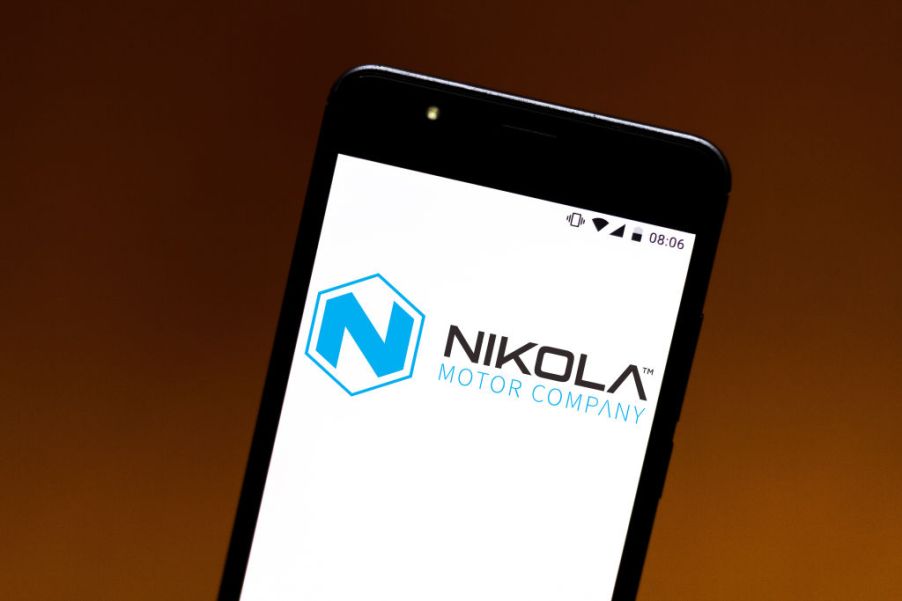
This Ambitious Company Is Trying to Revolutionize Trucking
Technology is beginning to change the trucking industry in big ways. Tesla is leading the charge for this transformation with its Semi truck due to roll out in late 2020. Hyundai and Neuron are among the other companies that are also vying to electrify big rigs on a large scale.
But there’s a startup with a different strategy for changing the industry. According to Forbes’s Alan Ohnsman, the Nikola Motor Company has bold plans to shake up the trucking world with hydrogen power. And it wants to go toe-to-toe with Tesla.
What is Nikola’s vision?

With only five years of operation under its belt, Nikola is a newcomer to the industry. Yet its major initiative is to change the transportation industry by making hydrogen mainstream. And using it to running big commercial trucks on it is just the beginning.
Accomplishing this is no small feat. Making hydrogen-powered vehicles has been problematic for manufacturers over the past five decades. They have been costly to produce and lack the efficiency of battery electric vehicles. GM, for example, has made several attempts to build fuel cell passenger cars and trucks, but with limited success. A lack of fuel station infrastructure is another obstacle that prevents hydrogen from becoming a viable fuel option.
Nikola has strategies for addressing these problems. First, it addresses efficiency by scaling it up to big rigs. CEO Trevor Milton claims that Class 8 heavy-duty trucks are a better fit because they can more easily carry compressed hydrogen tanks. Also, the cost of hydrogen technology is easier to recover on commercial vehicles than passenger cars. Hydrogen-powered trucks have driving ranges and refueling times that are comparable to diesel rigs as well. The startup plans to manufacture 50,000 hydrogen-powered big trucks a year by 2023.
It also will create a nationwide network of hydrogen stations to fuel them. And Nikola wants Toyota, GM, Honda, Hyundai, and Daimler to use those stations in order to expand the automakers’ hydrogen fuel cell vehicle sales beyond California, the only state where they are sold. Currently, the Golden State has only 37 fueling stations. But Nikola plans to build 700 hydrogen cell fuel stations, which will be the largest network of this kind in the world.
Challenges on the way to Nikola’s hydrogen revolution
Nikola’s far-reaching vision is not without its difficulties. The startup requires massive amounts of funding to fulfill its goals: a whopping $1.25 billion on top of the $300 million it has raised so far. Even though its truck orders are booked eight years out, a lack of funds could stymie its projected production start of late 2022. The hydrogen cell station network will take most of the 2020s to implement, too.
Competition from companies that are preparing to roll out battery trucks is another barrier to Nikola’s success. Within the next year or so, Tesla, China’s BYD, and Daimler will be putting electric rigs on the road for their customers.
Adding to these hurdles is a $2 billion lawsuit between Nikola and Tesla over a patent violation. In late 2017, Nikola claimed that Tesla copied the design of its Nikola One, which made its debut the year before. Tesla attempted to have the case dismissed but was unsuccessful. The dispute is not expected to reach resolution until sometime in 2020.
Will Nikola succeed?
Despite the uphill battles that Nikola faces, it has a few advantages in its favor.
One is that Nikola’s trucks are 5,000 pounds lighter than Tesla’s. Hydrogen fuel weighs less and takes up less volume than lithium batteries. Customers who want to buy greener trucks may like this benefit.
The reduction of downtime for refueling hydrogen-powered semis is also a big plus since battery recharge time can cause companies to lose money. Clients such as Anheuser-Busch and U.S. Express must have liked these advantages because they have already signed contracts with Nikola.
The company will also offer electric trucks. Milton says having two options will benefit customers because they will get the kind of trucks they need, not the kind that a manufacturer wants to sell to them. Offering these selections should work in Nikola’s favor.
Also, Nikola has found a way to make the batteries for these trucks cheaper, according to Forbes’ Ohnsman in an article published last month. Its breakthrough battery doesn’t use expensive metals such as cobalt, nickel, and magnesium. Nikola’s CEO is cagey about what element replaces those metals, but experts suspect that it’s sulfur. Several of them are skeptical because this technology has yet to be tested in real-world conditions.
The battery, if Nikola succeeds in developing it, would be a game-changer. It would not only be less expensive, but it would also be 40% lighter and double the energy density. The startup could build larger electric trucks because their range would no longer be affected by the extra weight of traditional lithium-ion batteries. A technological advance such as this could put Nikola light-years ahead of the rest of the green truck manufacturers.
Nikola’s ambitious plans have the scope and audacity of those that Tesla’s founders presented nearly 15 years ago. The former’s success, however, will depend to some extent on capital. It’s hard for anyone to know whether it can raise the funds it needs quickly enough meet production deadlines.
Another factor that will determine whether it will prosper as a strong rival against Tesla has to do with its accountability. If Nikola can achieve even half of what Milton promises, it would be a huge leap forward for hydrogen-based technology. And if Tesla was able to surpass expectations and make its mark in the EV segment, there’s reason to believe that Nikola could lead the way in hydrogen vehicle development.


